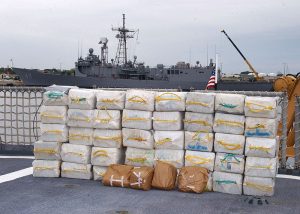The federal government has seized a private plane and 100 kilograms of cocaine from a suspected Mexico-to-Chicago pipeline. 80 kilos were seized from a vehicle in Chicago and another 20 were found in a hotel room. The plane was seized as part of the investigation. Authorities believe that the plane made its way to the Gary International Airport by way of Houston. The drugs were eventually found here in Chicago. Three men are now facing charges related to drug trafficking.
Private Jets and Drug Trafficking
Despite the cost of private jets, they are becoming much more popular among cartels and other traffickers. Private jets can look like personal business jets, so they provide good cover in plain sight. In many cases, these planes are coming from Brazil, which has been red-flagged as a major narco hotspot after mechanics found cocaine on a plane that had radioed for help.
 Chicago Criminal Lawyer Blog
Chicago Criminal Lawyer Blog



